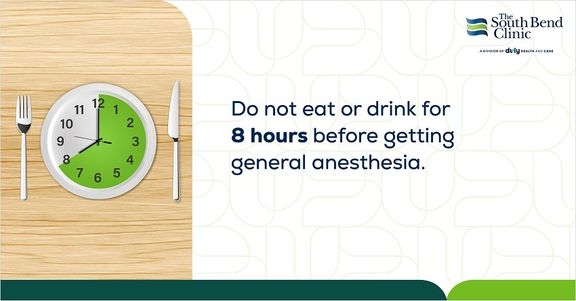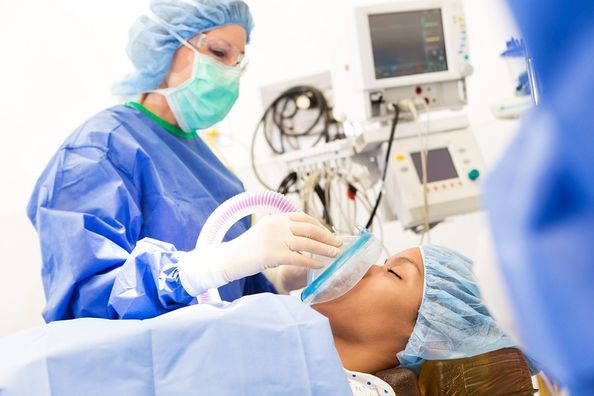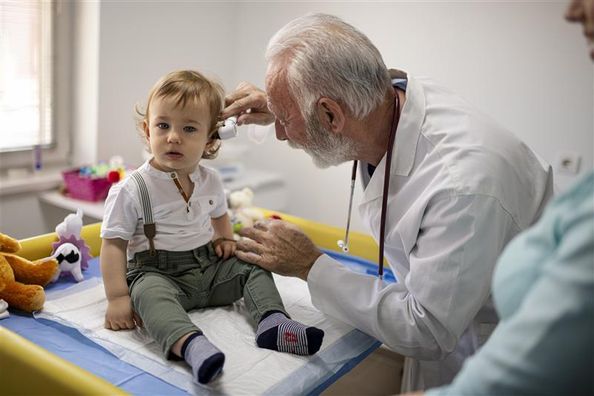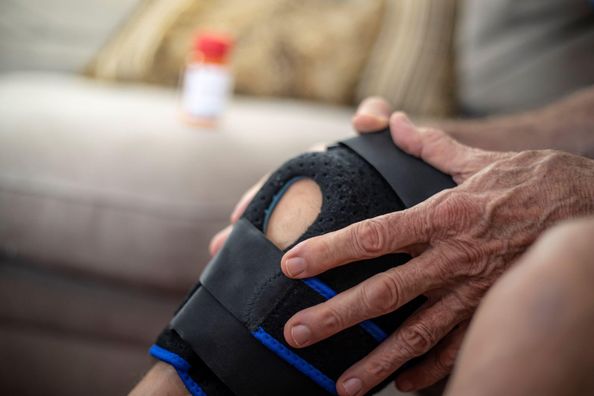Surgery is around the corner. You’ve arranged for a ride to the hospital, requested time off work, and treated yourself to a new pair of comfy pajamas for recovery. And now that you’ve taken care of the logistics, you’re thinking a little more about the surgery itself.
Your provider has told you that you will have general anesthesia. You’ve heard of it before, but you’re not quite sure what it means and what to expect.
It’s natural to feel uneasy about anesthesia, especially if you aren’t familiar with it. Here are answers to common questions about general anesthesia.
What Does “General” Anesthesia Mean?
Anesthesia is the use of medications during procedures or surgery to stop you from feeling pain. When people hear the word “anesthesia,” they often think about getting medication to help them fall asleep. This is general anesthesia. It does more than make you sleep – it makes you unconscious and not sensitive to pain. General anesthesia is usually used for invasive surgeries or procedures, especially if they involve your head, chest, or abdomen (belly).
However, this isn’t the only type of anesthesia. Other types are:
- Local anesthesia numbs only a small section of your body without affecting consciousness. It’s commonly used for minimally invasive procedures like skin biopsies.
- Regional anesthesia numbs a larger part of your body (like a specific limb or from the waist down). Like local anesthesia, it doesn’t affect consciousness. Regional anesthesia is often used to ease pain during childbirth (epidural). It can also be used to help manage chronic pain or control pain after some orthopedic surgeries.
- Sedation is often called “twilight sleep.” It relaxes you so that you’re in a deep sleep and don’t feel pain, similar to general anesthesia. However, you aren’t completely unconscious – your provider can still wake you if they need to communicate with you. Sedation is often used for procedures like colonoscopies or wisdom teeth removal.
Is Anesthesia Safe?
In most cases, general anesthesia is safe. An anesthesiologist or Certified Registered Nurse Anesthetist (CRNA), who is a specialist in anesthesiology, will monitor you during the whole procedure to keep an eye on your vital signs and watch for any problems. You will also be monitored after the procedure to make sure you don’t have complications as you wake up.
It’s possible to have serious complications like a collapsed lung, a severe allergic reaction, or malignant hyperthermia (fever and muscle contractions while under anesthesia). However, complications are rare and are more common in people with risk factors like certain diseases or a family history of anesthesia allergies.
If you have any questions or concerns about anesthesia, be sure to discuss them with your surgeon in your pre-operative appointment. Your surgical team understands that having surgery can feel overwhelming, and they’re committed to ensuring you feel completely comfortable and confident before your procedure. Your surgeon can provide you with comprehensive resources and detailed information to address any concerns you may have. Remember, your healthcare team is here to support you every step of the way – no question is too small, and they want to make sure you feel fully prepared and at ease before moving forward.
Will I Wake Up During Surgery?
Probably not. There are rare occasions when someone has brief, fleeting moments of consciousness. This is called anesthesia awareness. It doesn’t necessarily mean that someone has completely woken up – they might be in a dreamlike state or hear sounds going on around them.
It’s not always 100% clear what causes anesthesia awareness, but you do have an increased risk if you smoke, have breathing problems from lung disease or respiratory conditions, have multiple medical conditions, or have a history of substance use disorder.
Fortunately, most people who experience anesthesia awareness can safely receive anesthesia in the future and are not at a high risk of it happening again. Just be sure to tell your provider ahead of time if you’ve had anesthesia awareness in the past.
What Happens When You Wake Up After General Anesthesia?
You might be a little groggy and out of it when you first wake up, or dip in and out of sleep. As you continue to wake up, you may have some side effects like nausea and vomiting, sore throat from the breathing tube, muscle pain, or headache. These are usually mild and go away within 24 hours or less.
Don’t panic if you have slightly low blood pressure or changes in your heart rate. These are normal after surgery and can easily be treated with medication and fluids.
How Do I Prepare for Anesthesia?
Your provider will give you detailed instructions on what to do before getting anesthesia. They will likely tell you to fast beforehand.

Having food and drinks in your system can put you at risk for aspiration (undigested food makes its way into your esophagus and airway). It also takes up room in your stomach and bowels, which reduces the amount of space the surgical team has to work if you’re getting abdominal surgery.
Water is sometimes an exception to the rule. You may be able to drink it for up to two hours before the surgery.
Instructions might vary a bit depending on the type of procedure and your health, but there are a few basic rules of thumb when it comes to prepping for general anesthesia.
- Avoid alcohol, tobacco, and recreational drugs for several days before the procedure.
- Stop erectile dysfunction medications for at least 24 hours beforehand.
- Tell your provider about all prescription and over-the-counter medications, supplements, and vitamins you take. They may have you stop taking something or adjust a dose. Do not stop or alter your medication without talking to your provider first.
- Ask your provider if you can drink water before surgery.
Also read: What Is Robotic Surgery for Joint Replacement?
Is General Anesthesia Used During Labor?
It’s extremely rare for general anesthesia to be given during labor. Consciously participating during labor is considered important for safety and efficiency, but general anesthesia makes you lose consciousness.
Even C‑sections, which are surgical procedures, don’t always require general anesthesia. It’s typically only given during an emergency C‑section or when bleeding occurs.
It doesn’t matter if it’s your first time getting surgery or if you may as well call the operating room your second home. Anytime you get anesthesia, it’s normal to worry or be anxious. Let your provider know if you have any questions or concerns so you can be as comfortable as possible while getting ready for surgery.
Health Topics:





